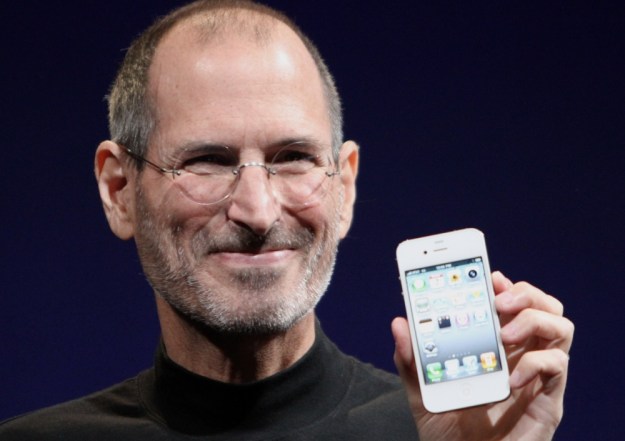 Apple has locked up the patent rights on a key piece of technology that makes the iPhone and iPad so irresistible to consumers. The U.S. Patent and Trademark Office awarded Apple the patent on Tuesday. The patent is concerned primarily with the way in which Apple’s software responds to user input on the touchscreen — not simply the touchscreen itself.
Apple has locked up the patent rights on a key piece of technology that makes the iPhone and iPad so irresistible to consumers. The U.S. Patent and Trademark Office awarded Apple the patent on Tuesday. The patent is concerned primarily with the way in which Apple’s software responds to user input on the touchscreen — not simply the touchscreen itself.
Here’s the official abstract that leads the document:
“A computer-implemented method, for use in conjunction with a portable multifunction device with a touch screen display, comprises displaying a portion of page content, including a frame displaying a portion of frame content and also including other content of the page, on the touch screen display. An N-finger translation gesture is detected on or near the touch screen display. In response, the page content, including the displayed portion of the frame content and the other content of the page, is translated to display a new portion of page content on the touch screen display. An M-finger translation gesture is detected on or near the touch screen display, where M is a different number than N. In response, the frame content is translated to display a new portion of frame content on the touch screen display, without translating the other content of the page.”
Apple had applied for the patent back in 2007. In October 2009, Nokia launched a lawsuit against Apple, claiming ten different patent infringements related to the iPhone. Apple responded by filing a countersuit, citing thirteen claims of patent infringement perpetrated by Nokia. However, the two rivals may be ready to play nice. Nokia announced last week that it had reached a licensing agreement with Apple said to be worth over $600 million.
In April of this year, Apple went on the offensive by launching a lawsuit against Samsung. Apple’s suit alleged that Samsung’s popular smartphone lineup is in essence a copy of Apple’s own designs. Samsung responded predictably with a countersuit accusing Apple of violating ten patents related to its own wireless technology.
It’s not clear if Apple’s newly acquired touchscreen patent will bring about a new flurry of legal activity. But given the highly litigious nature of the tech world in 21st century, we wouldn’t be surprised if Apple’s lawyers aren’t already gearing up for yet another standoff.

